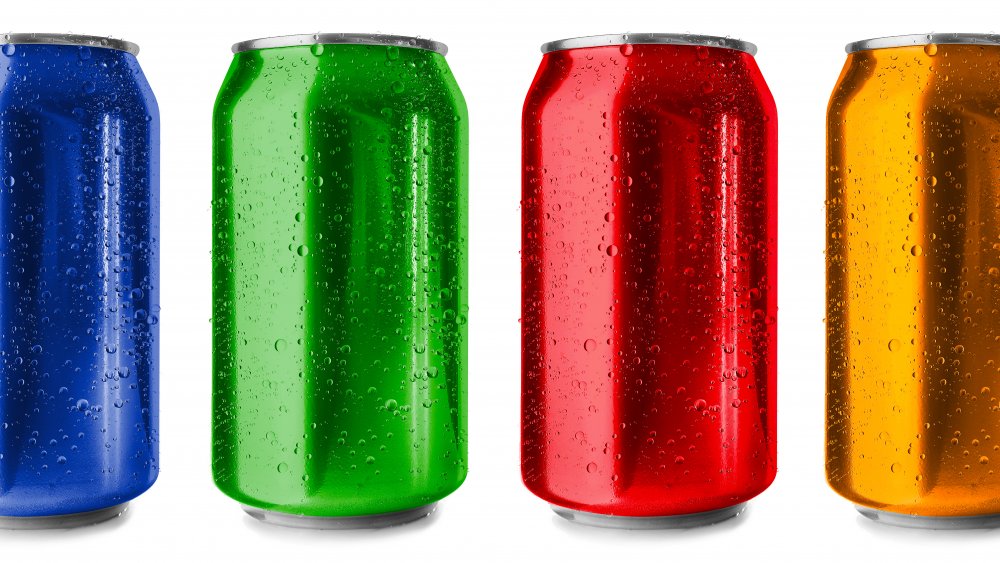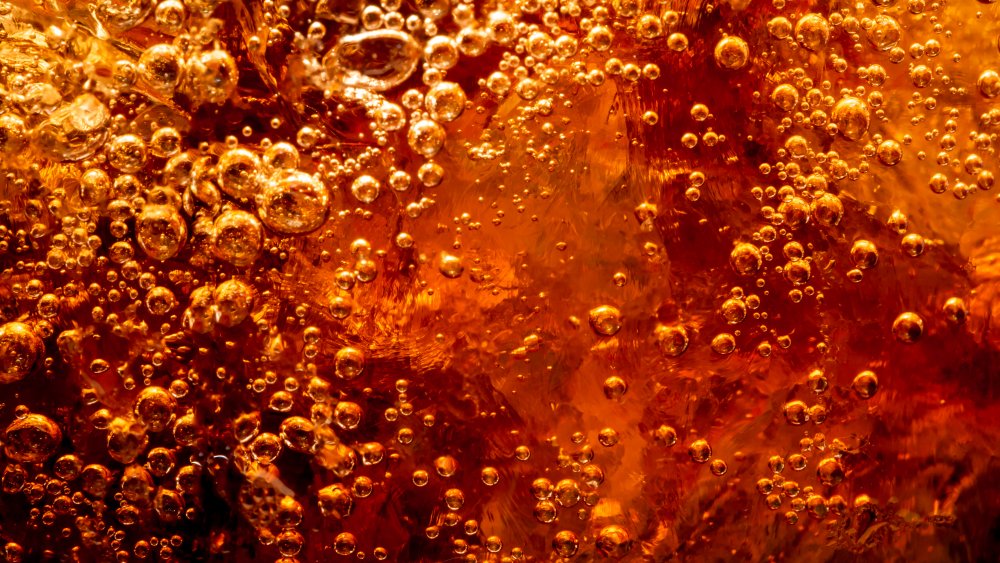The Real Reason There Might Be A Beer And Soda Shortage
In case there were not enough products you might have anxiety over running out of, you can add carbonated drinks to that list, too. Apparently, the novel coronavirus pandemic has caused a dip in demand for ethanol. A byproduct of ethanol is carbon dioxide, which is the naturally-occurring chemical compound that makes our favorite drinks like Diet Coke, beer, and sparkling water bubbly (via Fox News).
Americans are traveling less these days, which means there has been a decline in gasoline purchases, which is why the demand for ethanol has slumped. The carbon dioxide that is usually captured and sold in bulk to the food and beverage industries is now declining. In fact, supplies fell by 20 percent by early April and are estimated to fall even more to 50 percent by the middle of April. Also, prices have already gone up by 25 percent.
With these new changes, some brewers are expected to slow their production of beer in the next few weeks.
Implications from CO2 shortages
The issue of carbon dioxide shortages was first flagged as early as the end of February. Coke, which receives a large about of the gas from China, has already faced rising tensions over its supply chain (via Today).
"As a result of the outbreak of the novel coronavirus COVID-19, beginning in January 2020, our suppliers in China have experienced some delays in the production and export of these ingredients," the company specified in a report according to Today.
Even as this occurred, the soda giant did have a plan to ensure its customers would not face a shortage in the short term, though there could have been issues in long-term supply. Even with a plan in place and measures to ensure the virus did not spread among its employees in China, customers were understandably concerned.
With renewed concerns over the supply of carbonation, it is unclear as to which companies will be affected. If you have a favorite local brewery, though, you might want to stock up a bit.
Even the meat industry, which uses carbonation to process, pack, and preserve meat, is being affected. Smithfield, quite a large meat brand, recently closed its South Dakota meat processing plant. The CEO even said the repercussions from that plant and others shutting down could be "severe" if not "disastrous" for the United States' meat supply chain.

